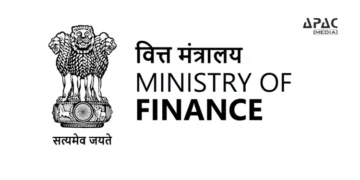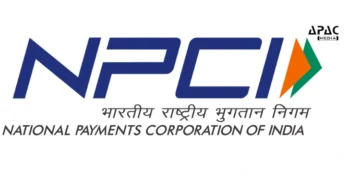India has set its sights on becoming a global drone hub by 2030, with the vision of Aatmanirbhar Bharat driving the push for indigenous innovation and secure technologies. At the heart of this transformation are startups like Zuppa, a deep-tech pioneer building India’s own cyber-physical stack for unmanned systems. In this exclusive conversation, Sai Pattabiram, Founder and Managing Director of Zuppa Geo Navigation Technologies Pvt Ltd, shares with Anannya Saraswat, Reporter (Public Sector and Leadership) at APAC Media and CXO Media, how the drone company is positioning itself in defense and civilian markets, the role of AI in shaping drone capabilities, and why indigenization in drone technologies is critical for India’s security and technological leadership.
How is Zuppa positioning itself in both defense and civilian drone markets? How does the company differentiate itself from its competitors?
Zuppa is the only Indian deep-tech developer of India’s cyber-physical stack for unmanned systems. Our proprietary ZuppaEDGE Adaptive A is a secure and highly adaptable system for both defense and civilian applications. In the defense sector, we have become the supplier of choice for secure micro drones and indigenous autopilots, especially after Operation Sindoor exposed the risks of relying on imported, hackable controllers.
For civilian markets, we offer our architecture for precision agriculture, infrastructure inspections, logistics, and disaster management—areas demanding reliability and security under tough conditions. Our key differentiator is that we control the full stack: we design not just the drones’ hardware, like autopilots, sensors, and communication modules, but also the embedded firmware. This ensures cybersecurity, adaptability, and sustained Indian intellectual property ownership.
Unlike many competitors who mostly assemble drones from imported, often Chinese, parts, our drones are truly engineered for India’s unique environments and critical security needs.
What is Zuppa’s approach to integrating AI and machine learning into drone operations?
ZUPPA’s NavGati Autopilot has been using AI and ML way before the terms started being used widely. Our patented DPCC architecture is an ADAPTIVE AI AGENT that electronically controls unmanned systems using data from sensors, much like a human would.
It features real-time electronic control, object recognition, predictive navigation, automated threat detection, and autonomous swarming through proprietary algorithms. We use machine learning for electronic control of unmanned systems, anomaly detection, real-time route optimisation, target tracking, and data analytics, empowering clients across defense—for border incursions and swarm countermeasures—and civilian sectors such as crop health monitoring, disaster response, and logistics optimization.
Our current focus is on “AI-on-the-edge,” enabling drones to learn, adapt, and operate securely even in GPS-denied and electronically contested environments.
What are the most promising commercial applications of drone technology beyond defense in agriculture, logistics, infrastructure, and healthcare?
Beyond defense, drone technology is revolutionizing Indian agriculture, infrastructure, logistics, and healthcare. AI-powered drones enhance crop monitoring, pest detection, and efficient spraying, vital for smallholder farmers. In infrastructure, they inspect railways, bridges, and pipelines, detecting faults invisible to humans, improving safety and maintenance. Autonomous drones optimize last-mile delivery in e-commerce and medical logistics, especially to remote areas. During disasters, drones provide rapid mapping and deliver emergency supplies, as demonstrated in Uttarakhand and Himachal. Built on secure AI-driven systems, these technologies offer reliable, trusted automation crucial for India’s diverse and challenging environments, driving economic growth and social impact.
Zuppa recently collaborated with the Indian Army to launch a dedicated Drone MRO Lab. How significant is this step in strengthening India’s drone maintenance ecosystem, and what impact will it have on operational readiness for defense forces?
Drones are now an integral part of modern warfare, requiring military personnel at all levels to be adept at using them. The scale of future deployments requires that drone operations be largely automated.
ZUPPA’s MRO lab draws inspiration from airliners, where automation has enabled global scaling by transforming the pilot’s role to be a manager of flight operations rather than one flying the aircraft. Our MRO lab is designed around the ZuppaEDGE Adaptive AI Agent that automates drone operations, thereby minimising the flying workload on the users, apart from enhancing the scalability of both training and usage. Additionally, our dedicated LMS (Learning Management Software ) facilitates mass training of army personnel. The value of this innovative approach to training for armed forces personnel was a major differentiator for the Madras Regimental Centre and is rapidly gaining traction among other centers as well.
We envisage that our innovative, automated, LMS-driven mass training solution will facilitate the Indian Defence Forces to rapidly scale the deployment of drone operators across the front line.
Zuppa is planning to expand into the US and UK markets within the next 24 months. What is your strategy for entering these highly competitive spaces?
Our entry strategy into the US and UK is based on the growing market demand for non-Chinese, cybersecure, and cost-effective drone alternatives, especially as these countries impose restrictions on Chinese drone usage. We plan to partner with defense contractors, system integrators, and homeland security agencies seeking trusted suppliers. Our go-to-market approach involves rapid pilot project rollouts, reference deployments in allied regions, and co-innovation with local partners. We will retain core R&D and manufacturing in India to balance export growth with our Atmanirbhar Bharat (self-reliance) priorities.
From a national security perspective, how critical is indigenization in drone technologies?
From a global geopolitical perspective, India doesn’t have an option for indigenization, as among the current global drone superpowers, namely Turkey, Iran, and China, it doesn’t have any significant leverage and, in fact, has inimical relationships with them. Indigenization is absolutely critical for national security.
Recent incidents like the hijacking of Indian Army drones and the use of Chinese components in terrorist attacks have revealed the dangers posed by foreign dependencies in dual-use and defense technologies. Indigenous design and manufacturing ensure that drones and their “brains”—autopilots and firmware—are trustworthy, auditable, and responsive to Indian sovereignty and threat scenarios. Secure-by-design Indian drones prevent backdoors, supply chain sabotage, and remote disabling, protecting not only critical missions but also national food security, data integrity, and strategic autonomy.
What are the deep technological risks associated with the imports of foreign autopilots?
Foreign autopilots, especially open-source or Chinese-made ones, pose grave risks due to hidden backdoors, supply chain vulnerabilities, and potential for real-time hijacking. Firmware or communication protocols can be tampered with during manufacture—invisibly to Indian inspectors—and activated remotely during critical missions. This is exactly the type of vulnerability seen in cases like the Hezbollah pager attacks and Indian drone hacking incidents. These risks could lead to compromised Geo Tagged data of strategic locations, fleet disablement, or drones turned against their operators. Only certified, fully indigenous stacks like ours mitigate these existential threats.
What are Zuppa’s long-term goals in the drone ecosystem, and what role do you envision for your company in India’s Atmanirbhar Bharat journey?
Our vision at Zuppa is to be the global alternative to Chinese cyber-physical drone systems, powering both defense and commercial sectors while exporting Indian innovation worldwide. We are committed to vertical integration—covering hardware, software, data analytics, and maintenance—and aim to anchor drone component supply chains firmly in India. We see ourselves as a catalyst for Atmanirbhar Bharat, building sovereign technological capacity in AI, electronics, and secure communication. We are fostering an ecosystem of skilled talent, startups, and global partnerships to help India become a global drone powerhouse.
India aims to become a global drone hub by 2030. What are the key enablers and bottlenecks you see?
The key enablers include strong intellectual property protection, increased public-private deep-tech research and development, fast-tracked type certification, robust component manufacturing, and talent development programs like Drone Shakti. Government incentives and bans on Chinese imports have begun shifting the industry towards genuine manufacturing. However, bottlenecks remain in policy execution, fragmented standards and certifications, and insufficient funding and collaboration at deep technology and component levels. The direction is right, and momentum is building, but harmonized, outcome-focused implementation is essential to avoid becoming stuck in “assembly trap” scenarios.
In your view, what role will drones play in redefining border security and regional deterrence?
AI-driven, cyber-secure drones are set to become the backbone of India’s border security and regional deterrence strategy. Drones now provide real-time surveillance, crowd and face analytics, counter-swarm capabilities, and rapid threat mitigation, far outperforming traditional ground and manned aerial patrols. With advances in indigenous swarm technology, closed-loop visual guidance, and hardening against electronic warfare and jamming, Indian drones will not only monitor borders but also actively neutralize asymmetric threats, deter adversaries, and ensure situational dominance—becoming the cutting edge of both defense and civilian security operations.
The post ‘Zuppa Wants to be the Global Alternative to Chinese Cyber-Physical Drone Systems in Defense and Commercial Sectors’: Sai Pattabiram, Founder & MD, Zuppa Geo Navigation Technologies Pvt Ltd first appeared on .


























































Discussion about this post